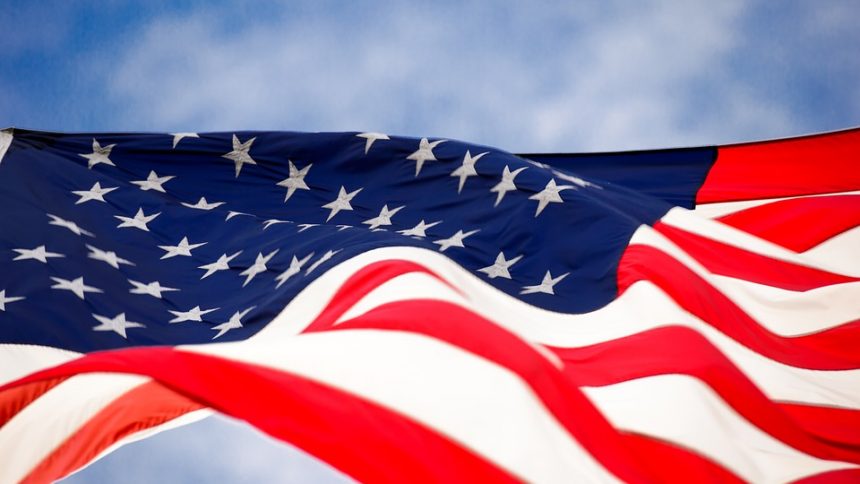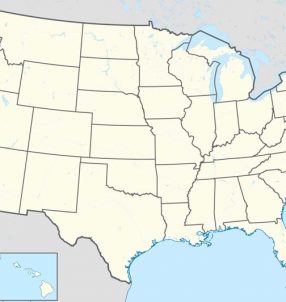The United States of America has a long history of gambling activities. The establishment of the gambling culture in the USA dates back to the pre-Columbian era. After the arrival of the Europeans to the new-found land, the notion of gambling has evolved gaining different meanings. In the current era, the USA constitutes a home to many major luxurious casinos. Here is the United States Gambling Laws and history guide for more information related to the gambling activities in the United States.
History
Gambling in what is now the United States dates back to the pre-Columbian era. Native American tribes took part in numerous activities on which one could place wagers. These societies used objects similar to dice, lottery balls and playing cards. When Christopher Columbus and his crew members discovered the Americas, gambling had been alive and well for quite some time. However, things changed significantly with the coming of European colonists.
European gambling takes root in North America
Most modern casino games such as blackjack, baccarat and roulette were developed in Europe during the Renaissance. They eventually came to America along with the colonists who settled there, gradually moving westward as European civilization spread across the continent.
During the 17th and 18th Centuries many of the British colonies in North America used lotteries to gain public revenue. Attitudes toward gambling varied greatly from community to community however, with puritan settlements in Massachusetts less tolerant of it than most other places. All forms of gambling were illegal in the Massachusetts Bay Colony.
Gambling even played a role in the independence movement in the colonies. In 1769 the English crown banned the use of lotteries in each of the 13 colonies without consulting their administrations. This unpopular measure added fuel to the already burning anti-imperial fire.
After the revolution began the Continental Congress planned to use a lottery to raise $10 million to fund the war. However, the idea had to be abandoned because few tickets could be told. Rather, the revolutionary government turned to France for a loan.
Horse racing also became popular in America during the colonial period. The first track was built on Long Island in 1665. Unlike dice and table games, betting on horses was generally treated as a gentlemanly activity. To this day it is associated with the wealthier segments of American society.
New Orleans was the first “gambling center” in the US during the early 19th Century. Surprisingly, the southern states were generally more tolerant of gambling during this time, reflecting French and Spanish influence. Poker, derived from a French game called poque, became popular in the Louisiana Territory after it was purchased from France in 1803. English-speaking settlers later Anglicized its name to “poker.”
The public became less tolerant of gambling by the mid-19th Century, and the professional gambler became a symbol of dishonesty, crime and immorality. Ironically, President Andrew Jackson, a compulsive gambler himself, led the charge for anti-gambling legislation during the 1830s.
In 1835 a lynch mob hung five professional card sharps in Mississippi. The incident led many gamblers to take their business onto riverboats, where card games were common practice. Thus casino games became popular on riverboats traveling the Mississippi River. This was big business, as by 1861 there were 557 such boats operating.
Riverboat gambling slowly faded as rail travel overtook transportation by waterway, but the activity still exists and is popular in some states. It is a relic of America’s past which has hung on into the modern era.
The Second Wave begins in the American West
The expansion of the Western frontier led to the “Second Wave” of American gambling, lasting from the mid-19th to the early 20th Centuries. Card games became the leisure activity of choice for many settlers who travelled to the West to work as railway workers and miners during the mid-century rail boom and gold rush.
Games of chance were a natural fit for the frontier lifestyle, as both reflected a spirit of adventure and risk taking. Card and dice games were held in roadside taverns, which over time expanded into full-fledged casinos.
San Francisco became the new center of the American gambling industry as the State of California issued casino licenses to raise tax revenue. Casinos and card rooms were frequented by miners, sailors, railway men, women and Chinese rail workers and merchants, many of whom operated card rooms of their own.
Other western towns like Deadwood, Denver, Dodge City and Kansas City also became home to significant gambling operations, bringing in travelers and residents of surrounding areas. Full of new settlements populated mostly by men, anti-gambling attitudes were not strong in the American West. The West is still associated with gambling in the popular consciousness.
While blackjack tables and poker rooms flourished during this time, eventually the industry got too big for its own good. As the frontier became settled and permanent communities replaced mining camps and boomtowns, the public began to turn against casino operators. The City of San Francisco banned gambling in 1855, and in 1860 the State of California followed suit.
But just as western states were taking aim at gambling houses, the age-old activity was enjoying a comeback in the South. Following the American Civil War (1861-1865) the former members of the Confederacy were war-torn and desperate for money to finance their efforts at reconstruction. It came mostly in the form of horse racing and state-sponsored lotteries.
The Louisiana Lottery became especially infamous. One of the largest lotteries in the country, it was linked to numerous corruption and fraud scandals. In 1868 the state government issued a charter to a private company to sell lottery tickets. By 1878, other states had abandoned their experiments and it was the only lottery remaining in the country. Tickets cost between $2 and $40, and the vast majority of tickets were sold to non-Louisiana residents through the mail.
Eventually the lottery was raking in $13 million in annual profit, an astounding number for the time. However, operators were repeatedly accused of corruption and bribery of public officials, and the federal government attempted to block the sale of tickets outside of state borders.
Under pressure from the growing Progressive movement the federal government banned the sale of lottery tickets through the mail in 1890. The lottery disbanded completely in 1895. That event marked the symbolic end of the Second Wave.
The Progressives take aim at gambling
The Second Wave was relatively short-lived due to a series of high-profile lottery and horse racing scandals and the growing tide of Progressivism in American politics. The Progressive movement was driven largely by Victorian standards of morality which held no place for perceived vices like drinking and card playing.
By 1910 all US states had banned casino gambling, and only three retained horse racing. Even Nevada, the symbolic home of the card-slinging frontiersman, put a stop to the activity in all forms. The territorial governments of Arizona and New Mexico even had to ban gambling in order to qualify for statehood.
Much to the dismay of anti-gambling crusaders, prohibition was an utter failure, just as prohibition of alcohol would prove to be a decade later. The activity simply began to operate outside of the law. Underground gambling dens were present anywhere interested parties could be found, which was almost everywhere. Many card room operators bribed public officials for the privilege of holding games in the open.
The rise of the black market created an unholy alliance between gambling and organized crime. Crime groups operating in cities like New York, Chicago and Kansas City used illegal gambling to increase their wealth and power. In 1916 New York gangster Arnold Rothstein successfully bribed the Chicago White Sox to throw the World Series in what remains the most infamous betting scandal in US history.
Increased crime coupled with the fading popularity of Progressivism led some politicians to rethink their stance on gambling during the 1920s. However, it would take a drastic change in the social climate to get states to reverse course and overturn prohibition. That eventually happened, in the form of a major economic crisis which later came to be known as the Great Depression.
Gambling is revived in bankrupt states
Just as a war-ravaged post-Civil War South turned to gambling to raise revenue, states thrown into economic crisis after the 1929 stock market crash and ensuing depression did the same. Massachusetts broke the threshold in 1931 by legalizing bingo to give churches and charities a way of raising money to care for their impoverished communities. Horseracing made a huge comeback, which 21 states legalizing it during the 1930s.
While legal gambling made a comeback in the East, it remained heavily regulated. Casinos were still not allowed to operate legally. For this reason, the post-1929 era is not referred to as the “Third Wave.” The return of gambling was a trickle, not a flood.
State governments increased their crackdown against mob-run operations. A famous public service film from the time showed New York City Mayor Fiorello LaGuardia smashing slot machines with a hammer and pushing them into the ocean. Chicago Mayor Anton Cermak also took aim at illegal gambling operators, which may have been the motivation behind his assassination in 1931.
The time period witnessed history repeating itself in another way. With the authorities in Eastern states going after illegal gambling, organized crime figures moved westward, just as gamblers had during the previous century. This migration was spurred by Nevada’s decision to repeal a ban on casinos in 1931.
Nevada becomes America’s casino mecca
Gambling has long been sewn into the unruly spirit of Nevada. While it had been prohibited for three decades during the Progressive Period, the government had never been able to get a handle on it. Underground card and dice games were held in basically every community in the state. Unable to stop it and in desperate need of tax revenue during the depths of the depression the state legislature decided to bring it back in legal form. In the beginning it was Reno, not Las Vegas, at the center of the state’s casino industry.
In 1937 California-born entrepreneur Bill Harrah opened a gambling hall in Reno. It marked the beginning of what would become one of America’s greatest gambling empires (in 1971 Harrah’s became the first casino company to be publicly traded on stock exchanges). The casino industry in Nevada truly took off after World War II as the country’s growing prosperity showed itself in greater demand for entertainment activities, gambling being one of them.
In 1947 New York mobster Bugsy Siegel obtained a Nevada gaming license and opened the Las Vegas Flamingo Resort & Hotel. Construction costs came in at $6 million, an astounding number for the time. It was immediately billed as the “West’s greatest resort hotel.”
However, it reportedly lost money during its first year in operation. Siegel became unpopular with the East Coast mob figures who helped finance the operation. Over time, however, it became the preferred destination for celebrities and high-rollers from across the country. It helped establish Las Vegas as the country’s leading casino gambling destination.
The connection between organized crime and Nevada casinos eventually became too obvious to ignore. During the early 1950s the national Kefauver Committee gave a series of hearings on the subject. It led to increased public scrutiny of the Nevadan casino industry. However, this time the authorities opted for increased oversight rather than outright prohibition. Eventually the mob sold its interests in all Nevada casinos.
However, mob influence in the casino industry left a lasting impression on the public. In 1950 California, Arizona, Montana and Massachusetts all held referendums on bringing gambling back in a legal, regulated form. Voters squashed the idea in all four cases.
The Third Wave finally hits
After sixty-years of relative prohibition everywhere except Nevada, the Third Wave of American gambling finally began in the 1960s. While during the 1930s gambling’s resurgence came mostly in the form of horseracing, this time state-run lotteries would lead the charge.
In 1964 New Hampshire became the first state since 1894 to operate a lottery. The move was motivated by, unsurprisingly, the desire to raise revenue without increasing tax rates (the state has never had an income or sales tax). It was followed by New York in 1967 and New Jersey in 1971.
The New Jersey lottery was the most successful in history because it opted for a low price, high volume model with a large number of small prizes. It proved to be a lasting trend; currently 44 US states plus the District of Columbia, Puerto Rico and the U.S. Virgin Islands have state lotteries.
The failed rebirth of Atlantic City
As lotteries came back into fashion, New Jersey officials and businessmen became interested in reviving decaying Atlantic City by transforming into a destination for casino gamblers. Atlantic City had been one the country’s most popular tourist destinations during the late 19th and early 20th Centuries (as well as a center of organized crime and illegal gambling). However, it never recovered from the Great Depression and the increasing affordability of vacations in Florida and the Bahamas. By the 1970s, it was popular only for those unable to afford vacations in more exotic locations.
By the 1960s it was obvious that something needed to done to save Atlantic City from total decay. “City father” Hap Farley put his political weight behind a bill that would legalize commercial casinos in the city. With the backing of the state governor, legislature and business groups, Farley got a referendum approved in 1976 to bring casino gambling to Atlantic City. Proponents spent $1.5 million campaigning for the referendum to pass.
At that point, New Jersey was only the second US state (after Nevada) with legal casino gambling. The first casino, Resorts International, opened in 1978 and instantly became a hit. Its success showed the pent-up demand that Americans had for the casino experience. Several Nevada casino operators became hungry for a piece of the action. The Golden Nugget, Showboat, Harrah’s and Tropicana each opened an Atlantic City branch to supplement operations in Nevada.
While the city became America’s number two destination for gamblers, the industry did not succeed in reviving Atlantic City’s fortunes. They brought in tax revenue, but the municipal population declined after 1978 and unemployment remained stubbornly high. Businesses surrounding the casinos continued to go under. Today, Atlantic City is a city in rapid decline.
The current trend continues to build
In 1979 Florida became the first US to state to host tribal gambling when the Seminoles opened a casino on Indian reservation land. Broward County police made arrests following the opening, but the tribe successfully sued the county on grounds that tribes have sovereignty rights which cannot be interfered with by state or local governments.
After lengthy legal proceedings a district court ruled in the Seminole’s favor, citing a Supreme Court ruling that states do not have the power to regulate activities on Indian reservations. This was due to the fact that they lie on federal, not state, land. The Seminoles’ landmark victory in Florida opened the floodgates for tribal casinos to open in other parts of the country. Many tribes quickly followed suit.
Today 28 states have legal tribal casinos. This form of gambling is more acceptable to the public because the facilities are generally located in isolated rural areas. However, in 1988 the federal government passed the Indian Gaming Regulatory Act, which required that tribes must reach a legal agreement with the states in which they are located before a casino can be built.
While tribal gambling is a relatively new phenomenon, commercial casinos have made a comeback in recent years as well. The trend is driven largely by historically familiar desire for states to raise revenue without increasing tax rates. Since the late 1980s a wave of states have legalized land-based commercial casinos, including Iowa (1989), Colorado (1990), Mississippi (1990), Louisiana (1991), West Virginia (1994), Michigan (1996), Maine (2004), Pennsylvania (2004), Kansas (2007), Maryland (2008), Ohio (2009) and South Dakota (2009). New York and Massachusetts also have plans to issue commercial casino licenses in the immediate future.
Many states also have race track casinos, riverboat casinos, card rooms and electronic gaming terminals. In fact, only ten states have a complete ban on gambling, and one of them, Massachusetts, will legalize commercial casinos in the near future.
Legal casino gambling is bigger than ever before in the US. In 2012 commercial casinos alone earned $37.34 billion in revenue and employed 336, 272 people. However, every action brings a reaction, and the history of gambling in America shows that each period of liberalization is eventually followed by a puritan pushback. The Third Wave will come to an end eventually; it’s just a matter of time.
History of Online Gambling in the US
Just as land-based casino gambling was making comeback, the coming of the internet during the early 1990s brought a flood of online gambling sites to American web surfers. In 1994 the small Caribbean nation of Antigua & Barbuda passed the Free Trade & Processing Act, which provided licenses to internet casino and sportsbook operators. At the time the US had no laws in place to license or regulate them. Anyone with a credit or debit card could play online freely.
Casino and sports betting sites came first, with the first online poker rooms launching in 1998. As more people gained internet access and more websites popped up every day, the amount of money wagered online by Americans increased significantly.
Under pressure from concerned citizens groups the federal government soon began exploring ways to curb the activity. In 1999 the Internet Gambling Prohibition Act was submitted to the US Senate, backed largely by conservative Christian groups such as Focus on the Family, Moral Majority and the Christian Coalition. The bill failed to pass due in large part to successful lobbying by Jack Abramoff, who was later convicted of corruption for shady dealings with American politicians.
Thus online gambling continued to move forward in the US. Foreign-licensed online casinos and sportsbooks as well as poker sites made huge amounts of revenue serving American customers. However, in 2002 the Justice Department (DOJ) decided to take the matter into its own hands.
Seeking to ban rather than regulate online gambling the DOJ chose to interpret the 1961 Wire Act, a bill originally designed to restrict interstate sports betting via telephone, as providing legal grounds to ban all forms of internet betting.
While some argued that the decision was unlawful, in 2004 Google and Yahoo removed all gambling advertisements from the websites to avoid being accused of “aiding and abetting” an illegal gambling operation, actions which are illegal under the Wire Act.
In 2007 US attorney Catherine Hanaway told Congress that “the Department of Justice’s view is and has been for some time that all forms of Internet gambling, including sports wagering, casino games and card games, are illegal under federal law.”
Antigua mounts a legal challenge
The DOJ decision posed a serious threat to Antigua & Barbuda, whose economy was heavily dependent on internet gambling sites serving US customers. In 2003 it filed a complaint against the US in the World Trade Organization (WTO), arguing that the Wire Act violated the principles of the WTO by discriminating against foreign firms.
While the US maintained its refusal to change the interpretation of the Wire Act, the WTO eventually ruled in favor of Antigua. In 2013 it granted the country to right to suspend US intellectual property rights, meaning that Antiguan companies could sell US-made music, films and TV shows without paying royalties to US companies.
Unlawful Internet Gambling Act
Despite internet gambling being illegal, Americans continued to do it in large numbers because there was little framework in place to prevent the activity. Attempting to change this in 2006 Congress passed the Unlawful Internet Gambling Enforcement Act (UIGEA), making it illegal for gambling sites to knowingly accept electronic payments from American customers.
The bill put some teeth into existing internet gambling prohibition by allowing the DOJ to prosecute companies and executives found to be in violation. However, individual customers of gambling sites remained free from punishment. The UIGEA shrunk the US market significantly as financial institutions stopped processing gambling-related transactions (although the UIGEA did not expressly make this a crime) and most foreign sites stopped serving customers with American IP addresses.
Black Friday
The most high-profile case of UIGEA enforcement came in 2011 when the DOJ indicted three major online poker sites for illegally serving US customers. In United States v. Scheinberg, the DOJ accused the operators of PokerStars, Full Tilt Poker and Cereus of violating the UIGEA and engaging in bank fraud to process transactions made by their customers.
The indictment was unsealed on April 15, 2011, a date known in the poker world as “Black Friday.” PokerStars and Full Tilt immediately stopped offering real money play to US customers. All three sites were forced to vacate their dotcom internet addresses and an undisclosed amount of player funds were seized but eventually returned. At the time, at least 1.3 million Americans were estimated to be playing poker for real money.
The DOJ indicted 11 individuals on criminal charges (operators, not players) and demanded $3 billion in compensation. PokerStars co-founder Brent Beckley as well as payment processors Ira Rubin and John Campos were each sentences to prison sentences ranging between three months and three years.
DOJ changes decision in 2011
In 2010 the DOJ changed its interpretation of the Wire Act while keeping UIGEA in place. It now argued that the Wire Act only applied to sports betting, so that states creating their own self-contained internet casino and poker markets were free to do so under US law.
Desperate for tax revenue in a harsh economic climate, New Jersey and Delaware legalized online gambling that same year, launching their first regulated online casino sites in 2013. Nevada legalized online poker. These represent the first licensed online gambling sites in US history. In addition to these states, several others including Texas, California and Illinois are considering similar legislation.
The emergence of legal online gambling has invited a reaction, however. In March 2013 Senator Lindsey Graham and Congressman Jason Chaffetz submitted the Restoration of America’s Wire Act (RAWA), a bill which would revise the Wire Act and force the DOJ to return to its pre-2011 interpretation. The bill is backed by Las Vegas Sands CEO Sheldon Adelson, a vocal anti-online gambling advocate.
According to Graham’s official website “gaming establishments, in states where gaming was legal prior to 2011, will not be affected.” As no states had legal online gambling prior to 2011, it amounts to a total federal ban on online gambling. If passed, the RAWA would force New Jersey, Delaware and Nevada to close their currently licensed, regulated online gambling markets. Only time will tell if the bill passes.
Legal Issues
There have been several high-profile legal tangles involving the American gambling industry in recent years, including the series of court cases following “Black Friday” and the recent DOJ decision to allow many forms of online gambling on the state level. There are several important ongoing cases as well.
New Jersey is currently attempting to override the Professional and Amateur Sports Protection Act (PASPA), a federal bill which prevents all but four states from holding legal sportsbetting. New Jersey is arguing that the PASPA violates its state sovereignty and is pushing for the Supreme Court to overturn it.
The state is being opposed by most major American sports leagues, who argue that legal betting threatens the integrity of sporting events. If New Jersey succeeds in having PASPA overturned, several other states are expected to follow suit and legalize betting.
While New Jersey is looking to expand sportsbetting, the Coalition to Stop Internet Gambling (backed by Las Vegas casino tycoon Sheldon Adelson) is pushing for a federal ban on all forms of online gambling and betting. In March 2013 Senator Lindsey Graham and Representative Jason Chappetz co-sponsored a bill known as the Restoration of America’s Wire Act, which would re-write the Wire Act to completely ban online gambling. At the time of writing the bill is being debated in the legislature.
Gambling culture in the US
The US has a very unique and contradictory culture with regards to gambling. On the one hand Americans have a puritanical attitude toward the activity, seen in the fact that most states have restrictive gambling laws, especially for the online platform. On the other hand, gambling has historically been an integral part of American culture, with millions of people taking part in it.
Many historians have found a connection between the risk-taking involved with gambling and the adventurous spirit of early European settlers and frontiersman in America. Throughout most of the country’s history the activity has enjoyed the most popularity in the West, the very embodiment of risk.
Poker is doubtlessly the most popular card game in the US. While the country has hundreds of card rooms, it is also very common for people to host “poker nights,” engaging in casual small-stakes games in their homes. The poker variant Texas Hold’Em, now the most common form of poker played worldwide, is believed to have been invented in Robstown, Texas during the early 19th Century. It was introduced to Las Vegas card rooms in 1967, and the rest is history.
But while poker holds the prime position in America’s gambling culture, casinos make most of their revenue from blackjack, originally a European import. The table game is home to a unique sub-culture in America. Many influential blackjack strategists and card counters like Al Francesco, Ken Uston, Edward O. Thorp and Arnold Snyder hail from the US. The concept of blackjack “advantage play” has been pioneered in the country.
Sportsbetting is one of the most interesting cultural phenomena in the US. While Americans love to bet on sports (a Gallup poll found that in 2009 17% of Americans wagered on at least one sporting event), it is illegal in all but four US states: Nevada, Delaware, Oregon and Montana. In addition, a large proportion of Americans associate sportsbetting with corruption, organized crime and match-fixing.
Problem gambling in the US
Like in other countries worldwide, millions of Americans struggle with gambling problems, putting their finances, families and friendships at risk. According to the National Council on Problem Gambling there are roughly two million “pathological gamblers” in the US as well as four to six million who are “problem gamblers” showing some, but not all, characteristics of gambling addiction.
Luckily, there is no shortage of treatment options available to problem gamblers. States with legalized casino markets use part of the tax revenue collected to fund treatment centers and support groups, and many private organizations also work with problem gamblers.
Casinos in the US
The US has a very complicated casino market because each state has its own gambling laws and regulations. That includes separate restrictions and regulations for casinos, racetracks, card rooms and electronic gambling machines. However, 40 US states currently have some form of legal casino operations. 17 issue licenses for commercial land-based or riverboat casinos, 14 for racetrack casinos, 28 for tribal casinos, five for card rooms, and seven for electronic gaming machines. Most states have a combination of several forms of gambling.
Unsurprisingly, Nevada has the most relaxed laws when it comes to commercial casinos. The state currently has 265, more than half the number for the entire country. While the State of New Jersey is second behind Nevada in total casino revenue, it has only 12 licensed casinos, all of which are located in Atlantic City. The strictest laws are found in Utah, Georgia, South Carolina, Tennessee, Massachusetts, New Hampshire, Vermont, Virginia, Kentucky and Arkansas; none of which have casino gambling in any form. However, Massachusetts is set to issue commercial casino licenses in the immediate future.
Each state also has different laws with regards to legal gambling age. In most states those ages 18 and over can purchase lottery tickets and in some cases enter a casino. However, in both Nevada and New Jersey only those age 21 and over can enter a casino. Presumably this is due to the fact that casinos serve alcohol in both states.
Casino gaming represents the most popular form of gambling after lottery. Amongst casino gamblers the most popular activities are blackjack and gaming machines (slots, keno and video poker). In the 14 commercial gaming states which provided data, each earned at least 62% of their total revenue from electronic gaming machines in 2012. 91% of Iowa’s commercial gaming revenue came from machines.
Online casinos in the US
Only two states have legally licensed and regulated online casinos: New Jersey and Delaware. New Jersey currently has seven licensed online casino providers, including Borgata, Caesar’s Interactive Entertainment—Bally’s, Caesar’s Interactive Entertainment—Boardwalk Regency, Golden Nugget, Tropicana, Trump Plaza and Trump Taj Mahal.
Delaware’s online casino market is run by the state lottery and is provided by a partnership of Scientific Gaming and 888 Holdings. In both states players must be 21 or older to participate, and sites as well as regulators use geolocation technology to enjoy that out-of-state residents cannot access online casino services. This is in compliance with the DOJ’s interpretation of the Wire Act, which says that online casino markets must be self-contained in the states in which they are licensed.
Sportsbetting in the US
The US has one of the Western world’s most restricted sportsbetting markets. In 1992 the federal government passed the Professional and Amateur Sports Protection Act, banning sportsbetting everywhere except in states where it was legal between 1976 and 1990. Thus the activity is currently only legal in Nevada, Delaware, Montana and Oregon, and betting on basketball games is only legal in Nevada.
Nevada first legalized betting on horse races and sporting events in 1949 and now has by far the most betting shops in the country. In addition, most Las Vegas casinos now have their own sportsbooks. In 2011 UK-based bookmaker William Hill purchased three Nevada sportsbook chains: Leroy’s, Lucky’s and Cal Neva, giving it control over 115 of the state’s 183 betting locations. In 2012 total of $3.45 billion was wagered with Nevada bookmakers.
The biggest betting event in the US is the NCAA Men’s Basketball Tournament, during which Americans bet roughly $3 billion annually. However, the vast majority of this money is wagered with overseas bookies or in informal groups called “office pools.”
Online sportsbetting in the US
The 1961 Wire Act banned all betting conducted over the telephone, and was later extended to cover internet betting as well. The US has no licensed online sportsbooks. That doesn’t mean that Americans don’t place bets online, however.
The Wire Act and UIGEA prohibit companies from accepting wagers on sporting events, but they don’t mention individuals engaging in the activity. Polls show that millions of Americans bet on sports every year, many of them using foreign-licensed online bookmakers. Most banks and credit card companies will not process these transactions, so customers place wagers using e-wallet services.
Poker in the US
The game of poker is deeply woven into the history of the US. From riverboat card sharps to frontier settlers to Las Vegas high-rollers, poker has long been one of America’s favorite games. It is also one of the most accessible gambling activities in the country, available in every state except 10.
Because of its important place in American culture and the fact that it is a game of skill rather than chance, poker rooms are legal in many places where full-fledged casinos aren’t. In addition, many casinos hold poker games as well.
In addition to the 17 states which currently have commercial casinos (most of which offering poker games), five states issue licenses to stand-alone card rooms: Minnesota, California, Florida, Montana and Washington.
Online poker in the US
While land-based poker games are readily available in commercial casinos and card rooms, online poker is restricted on the federal level by the Wire Act and Unlawful Internet Gambling Enforcement Act (UIGEA). While in 2011 the Department of Justice changed its interpretation of the Wire Act and to allow states to legalize and regulate their own online poker markets, only Nevada has done so.
In addition, the UIGEA is still in effect, making it a crime to accept deposits from US gamblers. In 2011 the DOJ used the UIGEA to indict 11 online poker operations for illegally serving US customers, an incident referred to as “Black Friday.” There is an exception, however, for licensed poker sites serving customers in their own jurisdictions. Nevada, New Jersey and Delaware launched legal online poker networks in 2013.
While licensed and regulated online poker is only available to residents of Nevada, New Jersey and Delaware, it is not a crime for individuals to play online poker with foreign operated sites. However, most of these sites do not accept debit or credit cards from US customers, who must make deposits with an e-wallet service.
Bingo in the US
Bingo does not enjoy the popularity in the US that it does in Britain, but it is legal in most states. Most of these games are run by churches and charity organizations, who use the proceeds to fund public service activities. Commercial bingo is legal only in the State of Nevada, where games are held in many casinos.
In addition, many tribal casinos also host bingo games. Most bingo establishments hold several one-hour games per day.
Online bingo in the US
Bingo games are not offered by online casinos in New Jersey and Delaware, the only legally licensed sites in the US. Americans looking to play bingo online must do so with foreign-licensed sites. Luckily, this is not prohibited as the Wire Act and UIGEA do not cover individuals gambling or placing bets.
Many Americans in fact play bingo with foreign-licensed casino sites, using e-wallet services to place wagers.
Lotteries in the US
Playing the lottery has been popular in the US since the colonial era, when many of the colonial administrations used lotteries to fund public budgets. After centuries of ups and downs when many states banned lotteries, they currently operate in 44 states plus the District of Columbia, Puerto Rico and the U.S. Virgin Islands. The only without a lottery are Alabama, Alaska, Hawaii, Nevada, Mississippi and Utah. There is no national lottery in the US.
The lottery enjoys tremendous popularity in the US, with millions of people playing each year. In 2009 countrywide the activity produced $17.9 billion in profit for state budgets. For many states the lottery remains a crucial source of public revenue.
Online lotteries in the US
Buying lottery tickets online was illegal under the Wire Act until 2011, when the DOJ changed its interpretation to allow online gambling as long as it didn’t involve sports betting. After that decision Illinois and Minnesota made lottery tickets available online, using age-verification and geolocation software to prevent misuse.
About the author
Mark-Antonio Zivic
Mark-Antonio Zivic used to be a professional footballer that won a record six Champions League medals... but decided to quit the game in his prime, believing he was better than both Ronaldo and Messi. Now he spends his time brainstorming ideas for Gambling Herald, before he ventures into Hollywood movies, rubbing shoulders with Daniel Day-Lewis and Sofia Vergara.
Hot Topics
The Eagle Spins Casino match bonus can earn you up to 1000%. Start your online ventures with a spin on the Bonus Wheel at this fascinating next-gen virtual slot parole.











